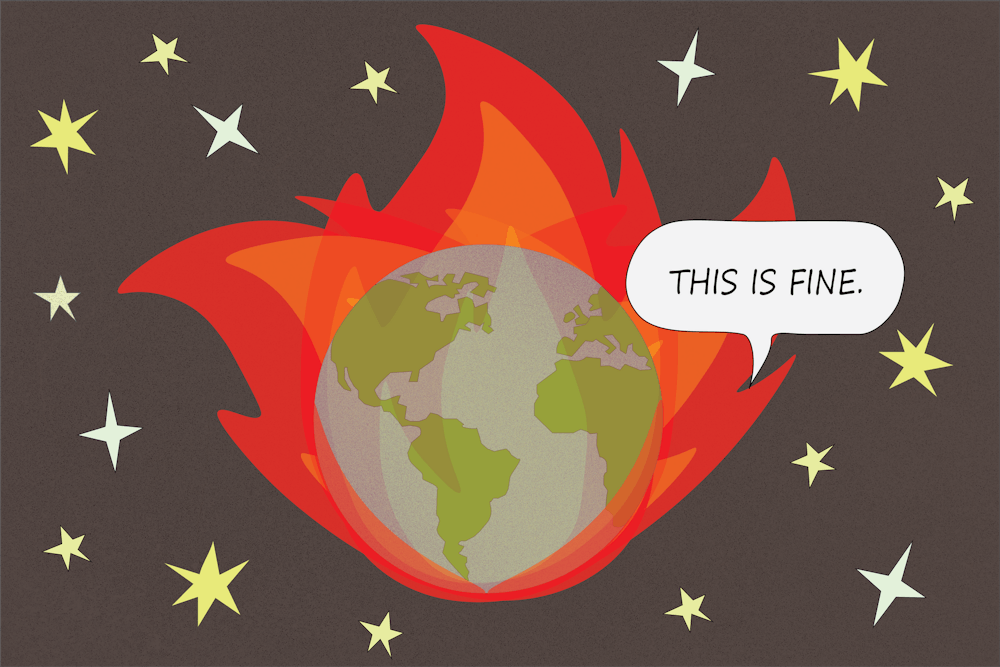You read an article about a company committing to be carbon neutral by 2050. You hear a politician promising to prioritize the environment. You feel hopeful — like maybe the Earth isn’t completely doomed. You recycle. You turn off the water when you brush your teeth. You buy secondhand and compost. You do your part to make the Earth a little greener because you’ve been told the big corporations and people in power are doing their part too. Then you turn on the news and see clips of western North Carolina drowning and, a few months later, Los Angeles burning, and you wonder, maybe those companies and politicians aren’t really holding up their end of the deal.
Companies have been making climate pledges en masse since 2015, but the sea level still rises 0.13 inches yearly, and coastal freshwater sources and land are increasingly threatened. Global warming as a political issue has existed since the ‘80s, but still, over 30 million people became climate refugees in 2022, a number that increases every year.
During Biden’s campaign in 2020, he pledged to stop drilling on federal land. In an attempt to appear to keep his promise, Biden signed an executive order to pause oil and natural gas leases in offshore waters or on public lands. Nevertheless, he later approved the lease of 78 million acres of offshore drilling. Additionally, he authorized 6,430 permits for oil and gas drilling in just his first two years.
Since 2007 Google has purchased carbon credits to match its emissions, allowing it to claim the term “carbon neutral,” without actually cutting any of its own greenhouse gas emissions. In 2023, the company dropped this greenwashing guise and set a new target to actually be carbon neutral by 2030. Google, however, does not seem on track to meet this goal as its 2023 emissions were 48 percent higher compared to 2019.
There are so many other examples of politicians and corporations who are fully capable of implementing climate change mitigation plans, making false promises and taking baby steps to cover their lies.
At this point, it feels impossible to ignore the problem of climate change any longer. Over the past few days, we’ve watched in horror as fires rampage across California, residents lose everything and the death toll slowly ticks up. The effects of climate change are being clearly documented and distributed in easy-to-view, bite-size videos and pictures. You don’t even need to be able to read to see the havoc climate change is wreaking on our planet.
It’s incredibly disheartening to watch entire towns be destroyed, as companies and politicians make vague promises of climate action in the distant future. It’s terrifying and, honestly, astounding, that climate action is still not a priority.
The truth is, we needed climate action years ago, and we need it more than anything now. We have less than five years before the Earth exceeds the 1.5 degrees Celsius limit. Once we pass this threshold, the consequences of climate change will become significantly more intense and global warming will be much harder to stop. Not to be dire, but things will only get worse from here.
While there is a lot of bad to consider in the fight against climate change, there are some glimmers of hope. Recently, the Town of Carrboro filed a lawsuit against Duke Energy for its deceptive climate action plans and greenwashing strategies. The first suit brought against a utilities company for such charges, it’s an important step toward holding companies accountable when it comes to sustainable practices.




